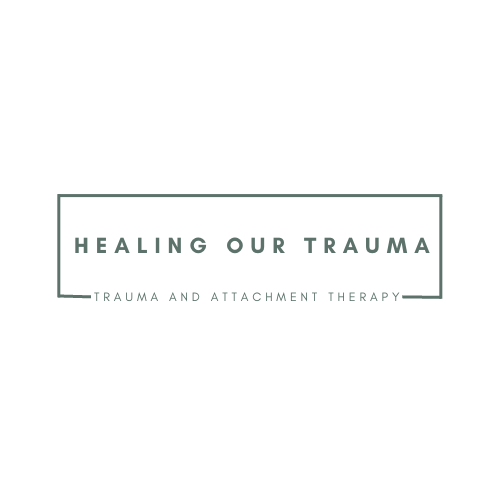Recognizing Trauma Responses in Adult Behavior
At Healing Trauma KC, we have a deep understanding of Trauma Responses and their diverse manifestations. Our aim is to offer a secure and nurturing environment for healing.
Acute Stress Disorder
Acute Stress Disorder (ASD) is a psychological condition marked by the emergence of distressing symptoms after experiencing a traumatic event. These symptoms encompass intrusive thoughts, dissociation, avoidance of reminders, negative mood, and heightened arousal. Although resembling post-traumatic stress disorder (PTSD), ASD occurs within the initial month following the trauma and can either naturally resolve or develop into PTSD if the symptoms persist. Timely identification and suitable interventions, like psychotherapy, can play a critical role in preventing the persistence of ASD and the potential progression to PTSD.
Adjustment Disorders
Adjustment Disorder is a psychological condition characterized by emotional and behavioral symptoms that arise in reaction to a significant life event. The distress experienced is out of proportion to the severity of the stressor, and the symptoms may encompass anxiety, depression, or behavioral disruptions. Unlike other mental health disorders, Adjustment Disorder is temporary and usually resolves as the individual adjusts to the stressor or its consequences. Timely support, coping strategies, and at times therapy can help in addressing the difficulties linked to Adjustment Disorder.
Borderline and
Other Personality Disorders
Borderline Personality Disorder (BPD) and other Personality Disorders are characterized by enduring patterns of thoughts, feelings, and behaviors that significantly deviate from cultural expectations, leading to interpersonal difficulties and functional impairment. In the case of Borderline Personality Disorder, individuals often experience intense and unstable relationships, self-image, and emotions, accompanied by impulsive behaviors. Other Personality Disorders, such as Narcissistic, Antisocial, or Avoidant Personality Disorders, manifest in distinct ways, reflecting persistent maladaptive traits. While the specific traits and behaviors vary, individuals with these disorders may face challenges in forming and maintaining healthy relationships and may benefit from psychotherapy tailored to address their unique patterns of thinking and behaving.
Complex Post Traumatic
Stress Disorder
Complex Post-Traumatic Stress Disorder (C-PTSD) is a psychological condition that arises from enduring and repetitive trauma, often involving interpersonal abuse, neglect, or captivity. It extends beyond traditional Post-Traumatic Stress Disorder (PTSD) by encompassing not only the usual PTSD symptoms but also difficulties in emotional regulation, self-perception, and interpersonal relationships. Those with C-PTSD may grapple with a pervasive sense of helplessness, altered self-identity, and challenges in forming and maintaining healthy connections. Treatment typically involves specialized therapeutic approaches that address the complex and pervasive impact of past traumas on various aspects of the individual's life.
Dissociative Disorders
Dissociative Disorders encompass a range of mental health conditions marked by disturbances in memory, identity, consciousness, or perception. They often serve as a coping mechanism in response to severe stress or trauma. These disorders, such as Dissociative Identity Disorder (previously known as multiple personality disorder) and Dissociative Amnesia, involve a disconnection from reality, resulting in significant memory gaps, a fragmented self-perception, and altered environmental awareness. Treatment generally entails psychotherapy to assist individuals in integrating their dissociated experiences, improving coping mechanisms, and fostering a unified sense of identity.
Generalized Anxiety Disorder
Generalized Anxiety Disorder (GAD) is a prevalent mental health condition marked by ongoing and excessive concern about different areas of life, including work, relationships, health, and everyday occurrences. People with GAD commonly struggle to rein in their worries, leading to symptoms such as restlessness, fatigue, irritability, muscle tension, and difficulties with concentration. This persistent and widespread anxiety can substantially affect daily activities and overall wellness. Treatment for Generalized Anxiety Disorder typically involves a blend of psychotherapy, medication, and lifestyle changes to aid in managing and reducing symptoms.
Major Depressive and
Other Mood Disorders
Major Depressive Disorder and Other Mood Disorders describe a variety of mental health conditions marked by disturbances in mood regulation. Major Depressive Disorder includes enduring and widespread feelings of sadness, hopelessness, and a lack of enjoyment in daily activities. Other Mood Disorders, like Bipolar Disorder, entail intense fluctuations between depressive and manic states. These conditions have a substantial effect on emotional well-being, behavior, and daily functioning. Treatment usually requires a mix of psychotherapy, medication, and support to aid in managing and stabilizing mood, ultimately enhancing the quality of life for those impacted by these disorders.
Post Traumatic Stress Disorder
Post-Traumatic Stress Disorder (PTSD) is a mental health condition that may occur in individuals who have been exposed to or witnessed a traumatic event. Symptoms include intrusive thoughts, flashbacks, nightmares, and heightened arousal, often resulting in difficulties in daily functioning and emotional well-being. PTSD can impact various aspects of life, including relationships and work. Treatment options, such as psychotherapy and medications, are designed to address and manage these symptoms, assisting individuals in processing the trauma and restoring a sense of control and stability in their lives. Early intervention is crucial in improving outcomes for those affected by PTSD.
Self Harm or Suicide
Self-injury is the deliberate and purposeful act of causing harm to oneself, often as a means of coping with emotional pain, stress, or overwhelming feelings. This behavior is not necessarily driven by a desire to end one's life but can serve as an unhelpful coping mechanism to manage emotional distress. Common forms of self-injury include cutting, burning, or other self-inflicted harm.
In contrast, suicide is the intentional act of taking one's own life. It represents a more severe and life-threatening form of self-injury, where the individual's aim is to end their existence. Suicide is a complex and serious issue often linked to underlying mental health conditions, profound despair, or intense feelings of hopelessness. It is crucial for individuals experiencing thoughts of self-injury or suicide to seek help from mental health professionals, friends, or family members, and for society to promote understanding and provide support for those in need. If you or someone you know is struggling with thoughts of self-injury or suicide, it's essential to reach out to mental health professionals or helplines for assistance.
At Healing Our Trauma we know that you want to be on a path to recovery and restoration. In order to do that, you need to address your underlying, unmet needs. The problem is most people don't know where to turn to or how to start which makes you feel frustrated and stuck. This leads some to want to quit. We believe in your resilience and the possibility of reclaiming a life marked by strength, growth, and renewed hope. We understand that overcoming trauma is a journey that requires personalized care, empathy, and a safe space for healing.
So, schedule a free evaluation. And in the meantime, sign-up for our Support Newsletter.
Together, we can navigate this journey toward healing, ensuring that you not only survive but thrive in the aftermath of trauma.
Contact Us
816-200-7909
Contact Us
We will get back to you as soon as possible
Please try again later
Insurance Accepted: Aetna (Missouri Only)
Forms of Payment: Cash, Check, Visa, Mastercard, Discover, American Express
Our address
Email: nadirah@healingtraumakc.com
Tel: 816-200-7909
12401 E 43rd St S, Independence, MO 64055, United States of America
Work Hours
- Mon - Fri
- -
- Sat - Sun
- Closed










